夕食は焼きサバに焼きナスで秋の味覚を堪能。サバは富山県産で「きずしOK」表示のある鮮度抜群のもの。昨日業務スーパーで購入しました。ナスは庭の畑で収穫した分です。
サバは塩をかけて焼いただけ、ナスはフライパンに油を少し入れて焼いただけ。料理の見た目はあまり良くなかったのですがどちらも奥深い味で期待を裏切らず美味しかったです。
魚も野菜も若い時はあまり好きではなかったのにベンゾ離脱を機に食生活に気をつけるうちに好みになりました。こうした季節のおかずがに炊きたてご飯とお味噌汁がそろえば和定食の出来上がり。安い費用でできて美味しく腹持ちが良い。化学調味料や保存料を使わず、低脂肪高たんぱく質なので健康にも良い。節約しながらも健康的な食事をとれるのです。日本の食文化の奥深さにただただ感動しました。
こうしてお米のご飯をしっかり食べるようにするとお酒がいらなくなり、別に禁酒しているわけではないのに晩酌無しでこの数ヵ月過ごしています。別に飲んでもかまわないのですが、ご飯があるとそれで糖質は足りてしまうのか飲酒欲求がなくなります。そして甘いものもいらなくなります。つまり季節のおいしいおかずでご飯をしっかり食べるとお酒も甘いものも自然と減らすことができ、この点からも健康的だと言えます。
何かと悪者にされる白米ですが、玄米などと比べて不純物が混じっていないので無毒な食べ物と言えます。それでいて糖質エネルギーがあるのでダイエットには理想的な食材ではないでしょうか。何よりおいしいし食べやすい、消化に良い。
「玄米」や「七分づき米」などあまり精米していない米を勧める医師の意見をたまにみかけます。そうした医師の意見を見聞きすると「白米文化に敵意を持っていて屁理屈を医師の権威で正当化し日本人から白米文化を滅ぼそうとしているのか?」という陰謀さえ疑ってしまうのです。
玄米に傾きかけたこともありますが仕込みに時間がかかるので炊きやすい白米以外では自炊の持続ができそうにありません。
お米の消費量が減っているのにどんどん病気が増え続けているデータをみても白米が病気の原因ではないことは明らか。むしろお米を食べない食生活が体はもちろん心の病気を増やしている原因だと思うのですが、あまりそういう意見はありません。白米を肯定してはいけないタブーでもあるのでしょうか?
とにかく自分は白米中心でも健診に引っかかるほど悪いとこはないし、20キロ以上減量できました。白米は精神安定にもなるのでこれからも主食であり続けます。
以下Google翻訳で英訳してみました
For dinner, I enjoyed the taste of autumn with grilled mackerel and grilled eggplant. The mackerel was from Toyama Prefecture and was extremely fresh, marked as “Kizushi OK”. I bought it at the Gyomu Supermarket yesterday. The eggplant was harvested from my garden.
I just grilled the mackerel with salt, and the eggplant in a frying pan with a little oil. The dishes didn’t look very good, but both had a deep flavor and lived up to my expectations.
I didn’t like fish or vegetables much when I was younger, but after I stopped taking benzos and started paying attention to my diet, I started to like them. These seasonal side dishes, along with freshly cooked rice and miso soup, make a Japanese set meal. It’s cheap to make, delicious, and filling. It’s healthy because it doesn’t use any chemical seasonings or preservatives, and is low in fat and high in protein. You can eat healthy meals while saving money. I was simply moved by the depth of Japanese food culture.
If you eat rice properly like this, you won’t need alcohol, and even though I’m not abstaining from alcohol, I’ve been going for the past few months without having a drink in the evening. It’s fine if I drink, but if I have rice, I don’t want to drink because I get enough carbohydrates. And I don’t need sweets. In other words, if you eat rice with delicious seasonal side dishes, you can naturally reduce your alcohol and sweets, which is also healthy.
White rice is often criticized, but compared to brown rice, it is a non-toxic food because it does not contain impurities. And it has carbohydrate energy, so it is an ideal food for dieting. Above all, it is delicious, easy to eat, and easy to digest.
I sometimes see doctors recommending rice that is not polished much, such as “brown rice” or “seven-tenths polished rice”. When I see or hear such doctors’ opinions, I even suspect a conspiracy: “Are they hostile to white rice culture, justifying their sophistry with the authority of doctors, and trying to destroy white rice culture from the Japanese?” I’ve been leaning towards brown rice, but it takes a long time to prepare, so I don’t think I can continue to cook anything other than white rice, which is easy to cook.
Looking at the data showing that rice consumption is decreasing yet illnesses are increasing, it’s clear that white rice is not the cause of illness. Rather, I think that a diet that doesn’t eat rice is the cause of an increase in physical and mental illnesses, but not many people agree with that. Is it a taboo that shouldn’t be positive about white rice?
Anyway, even though I mainly eat white rice, there’s nothing bad about me that would cause me to fail a health check, and I’ve lost over 20 kg. White rice also helps me to stabilize my mental health, so it will continue to be my staple food.
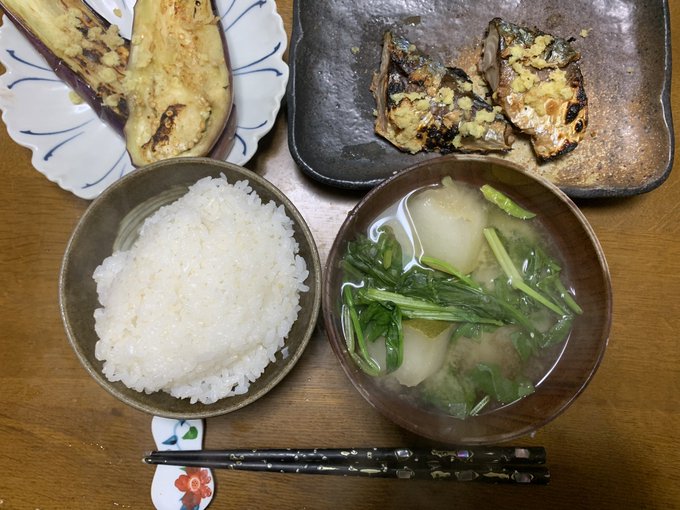
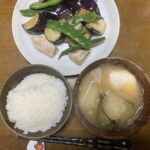
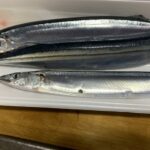
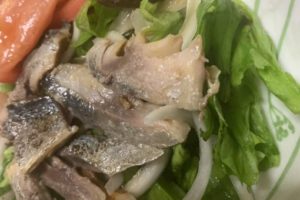

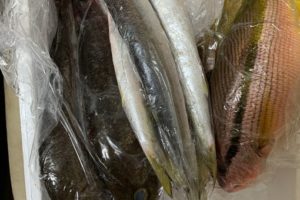
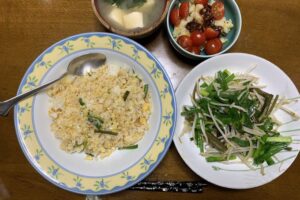
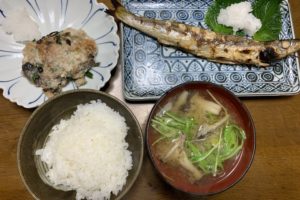
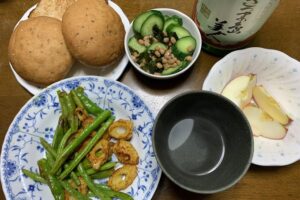
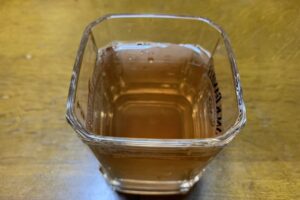



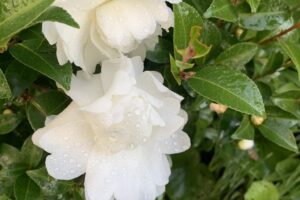
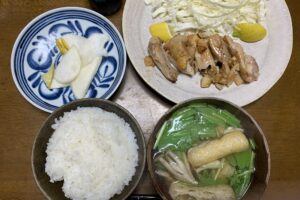
コメントを残す